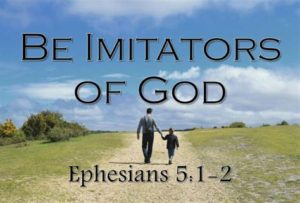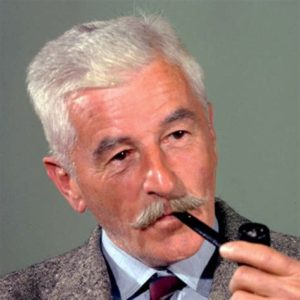“But let your word ‘yes’ be ‘yes,’ and your ‘no’ be ‘no.’” (Matthew 5:37)
 This verse is nestled into an admonition from Jesus that we should tell the truth at all times. In verse 33 we see that we should “keep our word,” and in verse 36 we are told that we should not “swear by the head.” The latter phrase was a common expression of the times which meant, in essence, swearing on one’s life. The rest of that verse says “because you cannot make one hair white or black.” What that phrase is saying (and what Christ is saying) is that we should not think that we have more control over our lives than what we do. God is the author of life and if we swear on our lives, we are superseding His authority. It would be akin to swearing on our mother’s grave. We have no more control of our mother’s grave than we do on our own lives. Jesus is saying that swearing on anything is a useless endeavor; the key is living our lives in truth. After all, the worse men are, the less they are bound by oaths; the better they are, the less there is need for them.
This verse is nestled into an admonition from Jesus that we should tell the truth at all times. In verse 33 we see that we should “keep our word,” and in verse 36 we are told that we should not “swear by the head.” The latter phrase was a common expression of the times which meant, in essence, swearing on one’s life. The rest of that verse says “because you cannot make one hair white or black.” What that phrase is saying (and what Christ is saying) is that we should not think that we have more control over our lives than what we do. God is the author of life and if we swear on our lives, we are superseding His authority. It would be akin to swearing on our mother’s grave. We have no more control of our mother’s grave than we do on our own lives. Jesus is saying that swearing on anything is a useless endeavor; the key is living our lives in truth. After all, the worse men are, the less they are bound by oaths; the better they are, the less there is need for them.
There is a tremendous need for truth in this day and age… well, in any day and age. However, we are particularly surrounded with falseness as the time of Christ approaches. Like a massive boulder gathering speed down a mountainside, falsehood is gaining momentum both in and out of the church. This should be expected, but should not be accepted. As Christians we have the opportunity to illustrate the power of Christ by making sure that our “yes is yes” and our “no is no.” That small show of consistency can separate us from a world filled with erraticism.
Like a massive boulder gathering speed down a mountainside, falsehood is gaining momentum both in and out of the church. This should be expected, but should not be accepted. As Christians we have the opportunity to illustrate the power of Christ by making sure that our “yes is yes” and our “no is no.” That small show of consistency can separate us from a world filled with erraticism.
 A few years back, Brian Williams, well-known NBC anchorman, was caught in a series of lies about his involvement in some of his news stories. He was suspended and has a black eye that will follow him the rest of his career. However, not everyone felt he did much wrong. His series of lies carried less of a stigma than single lies of newsmen, politicians, and public figures of the past. Lying has become almost acceptable if the person lying has the support of the majority. It seems that apologies for lying in this day and age are really apologies for getting caught. One of the early church fathers, Augustine, said, “When regard for truth has been broken down or even slightly weakened, all things will remain doubtful.” We live in a time when many words carry the haze of doubt with them. As Christians we are instructed to make sure there is no haze to our words. Others should, as they say, be able to take our words, “to the bank.”
A few years back, Brian Williams, well-known NBC anchorman, was caught in a series of lies about his involvement in some of his news stories. He was suspended and has a black eye that will follow him the rest of his career. However, not everyone felt he did much wrong. His series of lies carried less of a stigma than single lies of newsmen, politicians, and public figures of the past. Lying has become almost acceptable if the person lying has the support of the majority. It seems that apologies for lying in this day and age are really apologies for getting caught. One of the early church fathers, Augustine, said, “When regard for truth has been broken down or even slightly weakened, all things will remain doubtful.” We live in a time when many words carry the haze of doubt with them. As Christians we are instructed to make sure there is no haze to our words. Others should, as they say, be able to take our words, “to the bank.”
It has been said that lies have no legs. They require other lies to support them. Lies are never individual and always come in herds. Lies maintain their lives only from more lies. Lies, like weeds in a garden, will choke out truth when it tries to surface. In Psalm 86:11 we are told, “Teach me your way, O LORD, that I may walk in your truth; unite my heart to fear your name.” Untruthfulness is a result of not fearing God. If we fear God, being truthful will be a priority. When we realize that all lies are an offense to Him, we will think twice about what we say.  When our world revolves around us instead of God, lying is an insignificant trespass.
When our world revolves around us instead of God, lying is an insignificant trespass.
A minister told his congregation that he would be preaching on lying the following week and asked them to read Mark 17 in preparation. The following Sunday before he delivered his sermon he asked how many people read the assigned chapter. Many hands went up in the air. He smiled and said, “Mark only has sixteen chapters. I will now proceed with my sermon on the sin of lying.” It might be funnier if it wasn’t entirely possible. Lying is not just for alleys anymore.
Jesus lived out the words He said. In Matthew 22:16 He is told, “Teacher, we know that you are true and teach the way of God truthfully, and you do not care about anyone’s opinion, for you are not swayed by appearances.” Jesus knew the value of truth. He knew that truth was freedom. He did not have to listen to the words of others or test which way the wind was blowing. He knew that the truth would set people free and their freedom was more important to Him than popularity. We are to follow the example of Christ and the apostle Paul reminds us of this in 1 Corinthians 11:1 when he  writes “Be imitators of me, just as I also am of Christ.” Every believer should imitate Christ, and every believer should prioritize truth, not occasionally, but constantly.
writes “Be imitators of me, just as I also am of Christ.” Every believer should imitate Christ, and every believer should prioritize truth, not occasionally, but constantly.
The world cries out for those whose “yes is yes” and “no is no.” As believers we need to respond to that cry. Only the power of Christ can equip us to accept nothing less than the truth from ourselves. The great American author  William Faulkner said, “Never be afraid to raise your voice for honesty and truth and compassion against injustice and lying and greed. If people all over the world…would do this, it would change the earth.” But Faulkner was wrong. Truth alone cannot change the earth, but truth about Christ can. As Christians we can change the world because our truthfulness lends credence to our words about Christ.
William Faulkner said, “Never be afraid to raise your voice for honesty and truth and compassion against injustice and lying and greed. If people all over the world…would do this, it would change the earth.” But Faulkner was wrong. Truth alone cannot change the earth, but truth about Christ can. As Christians we can change the world because our truthfulness lends credence to our words about Christ.
Christ is not just truthful, He is Truth. John 1:1 says, “In the beginning was the Word, the Word was with God, and the Word was God.” Our word should always be our word, because our credibility about The Word will be determined by the truthfulness of our other words. Truth is the intention of many, but the deed of few. For believers truth must  be much more than just intention. It must be real. Our words of Christ should not be diminished by others doubt in us. There is no better reason to let our “yes be yes” and our “no be no,” than the knowledge that it makes us better equipped to represent Christ. We should be truthful today, so that we can boldly share The Truth of Christ tomorrow.
be much more than just intention. It must be real. Our words of Christ should not be diminished by others doubt in us. There is no better reason to let our “yes be yes” and our “no be no,” than the knowledge that it makes us better equipped to represent Christ. We should be truthful today, so that we can boldly share The Truth of Christ tomorrow.
Leave a Reply